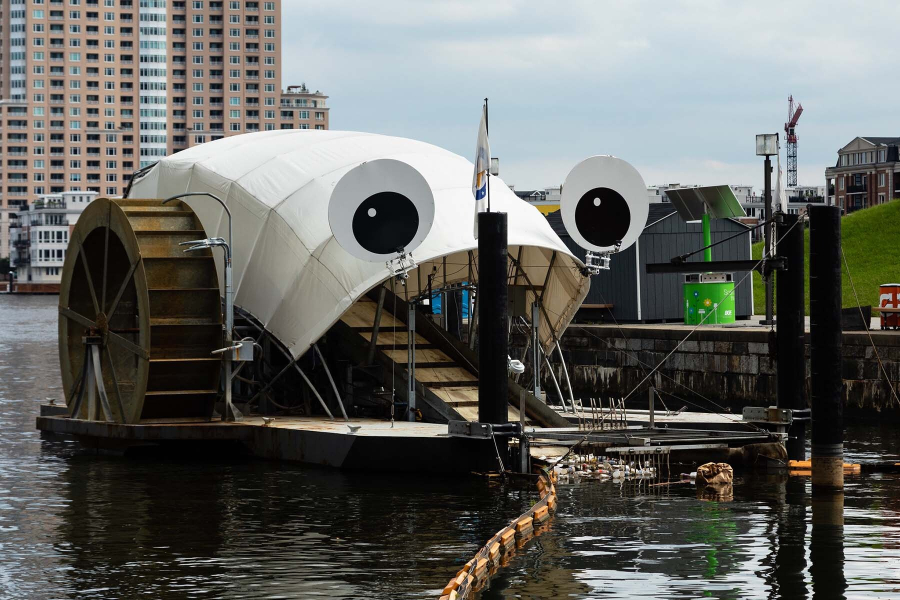Mr. Trash Wheel gobbles up what we feed him

Have you met Mr. Trash Wheel? He lives in Baltimore’s Inner Harbor, is big fan of Star Wars, pythons and social media—and happens to be a solar-powered machine. Since 2014, he has been put to work “eating” trash in the Inner Harbor and serving as a googly-eyed ambassador for litter prevention.
Mr. Trash Wheel is no longer alone; he has been joined by Professor Trash Wheel in Canton and Captain Trash Wheel at Masonville Cove, both in Baltimore. Together, they have eaten:
- 649,236 plastic bags.
- 11,305,578 cigarette butts.
- 1,026,482 foam containers.
- 880,646 plastic bottles.
But these garbage gobblers are merely treating a problem of our creation: litter. In order for us to have a cleaner Inner Harbor, Anacostia River, Patapsco River or Chesapeake Bay, we need to prevent trash from reaching them in the first place, as well as decrease the amount we throw away.
Here are a few ways you can help reduce litter:
- Properly dispose of waste: If there isn’t a trash can or recycling bin year you, hold on to your trash until you find one. Don’t throw litter on the ground or out the window.
- Recycle at work: Check out your workplace’s recycling programs. Are recycling bins available and are people encouraged to use them? Make sure you know what can and can’t be recycled and spread the word.
- Go reusable: Use a lunch box instead of plastic or paper bags. Fill it with a cloth napkin and reusable, sealed bags and boxes for food instead of re-sealable plastic bags. Bring a reusable bottle or mug for your water, coffee, tea or other favorite drink.
- Skip the extras: When ordering food to-go, ask the restaurant to not include paper napkins, plastic utensils, straws or even condiments. If you are taking the food home, you’ll have most of or all those things there. If you’re eating at work or on the go, get in the habit of having a reusable straw or utensils with you that you can wash and use for your next meal.
- Boat smart: When on board a boat, canoe or kayak, stow and secure bags, bottles, fishing lines and other trash so it doesn’t fall into the water.
Learn more about what you can do to help the environment.

Comments
There are no comments.
Thank you!
Your comment has been received. Before it can be published, the comment will be reviewed by our team to ensure it adheres with our rules of engagement.
Back to recent stories